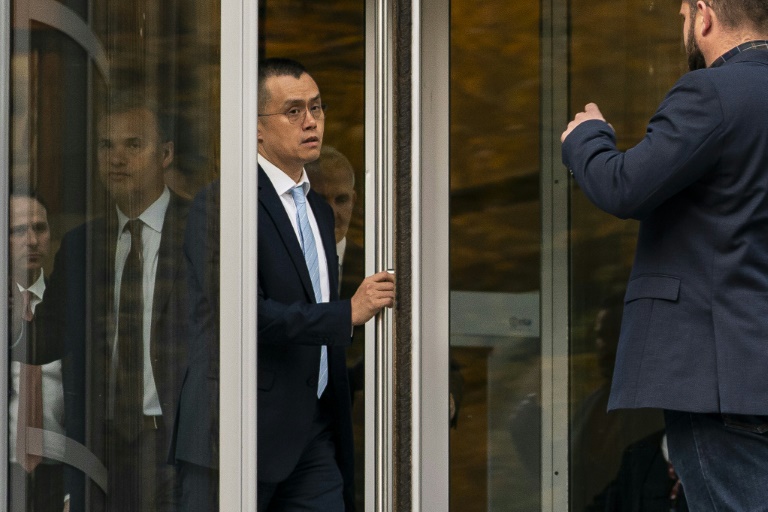A stealth campaign by Silicon Valley elites with a dream of turning a swath of California farmland into a new age city has ranchers who live here challenging their tactics and their motives.
The project first surfaced when a mysterious buyer started snapping up parcels of land in this rural outback between San Francisco and Sacramento.
The buyer, first revealed by The New York Times in August, turned out to be a secretive outfit called Flannery Associates, the brainchild of a former Goldman Sachs wunderkind, Jan Sramek.
Flannery Associates said on its recently launched website that it has acquired more than 50,000 acres (20,200 hectares) of land for its California Forever project, whose backers include LinkedIn cofounder Reid Hoffman, Steve Jobs’s widow Laurene Powell Jobs and star tech investor Marc Andreessen.
According to court documents, the tycoons have already shelled out more than $800 million to fulfill their vision of building a city in the middle of nowhere.
“This doesn’t just happen at Burning Man one night, doing some mushrooms,” Solano County property owner John Sweeney told AFP while standing on a lot surrounded by land bought by Flannery.
The group started covertly buying parcels in Solano County between the city of Fairfield and Travis Air Force Base about five years ago, according to residents interviewed by AFP.
Cassandra Dana said the first unsolicited offer she got from Flannery to buy her ranch came in 2018, and she’s been called relentlessly in subsequent years.
“It’s at the point of when they do call and they say who they are, I basically just hang up,” Dana said of Flannery.
“They’ve actually reached out to my oldest daughter and asked her… to sell it from underneath me.”
Neighbors in the tight-knit community have been targeted with a gamut of tactics, according to Sweeney.
He said he was contacted five years ago on behalf of a group purportedly interested in buying his property to preserve it for agriculture.
“They pulled all sorts of different tricks,” Sweeney said.
“It was pretty underhanded in general.”
According to the project’s website, the new city would host the “agriculture and green energy industries that sustainably feed and power our state, strong middle-class communities and our nation’s busiest Air Force base.”
Nestled between Sacramento, the California Delta, San Francisco and Napa Valley, it “would include a variety of land uses: a new community, but also solar farms and open space, including both agriculture and habitat conservation.”
The road ahead however will not be easy for this tech-age, utopian project.
Flannery has filed a half-billion-dollar lawsuit against some land owners in federal court, accusing them of conspiring to get higher prices for their properties.
“Their lawsuit makes it sound like there were some big meetings where people were talking about how to screw Flannery,” said Sweeney.
“Well, no. Everyone just knew that if you waited longer, you’d get more money; that’s logical.”
Flannery declined an interview for this story, with a spokesperson telling AFP that the company might have a response in several months.
– Dream or delusion? –
Fairfield Mayor Catherine Moy told AFP her community just learned a few weeks ago of the campaign to buy up nearby agricultural land.
“We’re trying to find out everything we can,” Moy said.
Flannery has bought land around the air force base, which is a main transport hub for supplies headed to Ukraine and other parts of the world, according to Moy.
“At this point, I’m opposing it. Anything that threatens Travis Air Force Base threatens my city and the country.”
For now, that land is occupied by livestock, wind turbines and farmers and ranchers who have long been in harmony with the base, Moy said.
“This proposed city situation, it just breaks my heart because it’s gonna ruin all of our rural area,” Dana said as she tended to a small herd of goats.
“It’s just open land and it’s beautiful.”
Moy said she has written a letter to California Governor Gavin Newsom expressing concerns.
Newsom, for his part, said earlier this month that the California Forever project, after its exposure by US media, was a surprise to him as well, and that he planned to meet with a representative from the group.
And while the project’s website presents a heady vision, there are no details concerning things such as concrete plans for where the new city would get its water supply.
“The ‘Forever,’ or as we call it, the ‘Never Project,’ would change the countryside into, I guess, a modern San Francisco,” property owner Sweeney mused.

 Business4 months ago
Business4 months ago
 Business5 months ago
Business5 months ago
 Events4 months ago
Events4 months ago
 People4 months ago
People4 months ago
 Events5 months ago
Events5 months ago
















